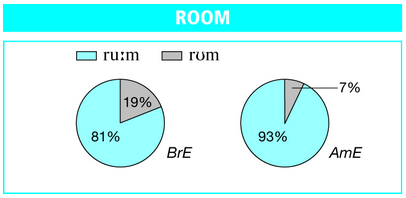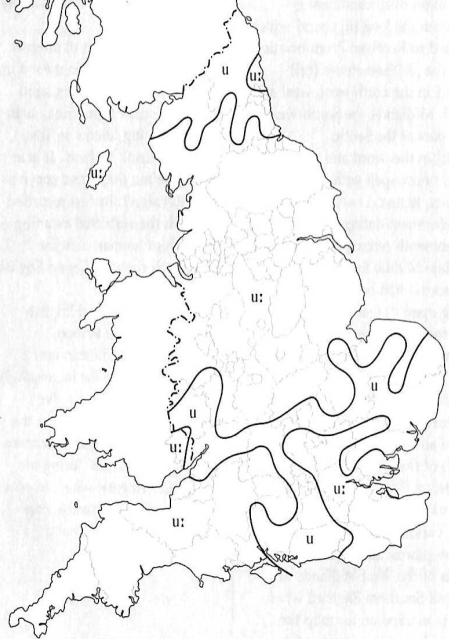2021-02-03 Wed
■ #4300. サッポロ LAGAR が発売されました [spelling][orthography][prestige]
この数週間待ちわびていたのですが,昨日,サッポロビールより新商品の缶ビール「サッポロ 開拓使麦酒仕立て」が発売されました.ポイントは,缶のデザインに表記されている LAGAR です.「ラガー」の綴字は正しくは lager で -er をもつのですが,印刷では -ar となっているのです. *
詳細はこちらの1月13日付の朝日新聞デジタルの記事をご覧いただければと思います.サッポロビールが事前にこのスペルミスに気づき,発売中止を決めていたけれども,世論の要望を受けてそのまま売り出すことに決めたという趣旨です.
私個人としては(ビール好きであることも関係しますが),指摘されなければ気づかないほどの小さなスペルミスで発売中止にするというのはもったいないという立場で,サッポロビールの決断を支持したいと思います.ただし,1英語教員として手放しに寛容主義を貫くわけにもいかないという難しい立場にもありますので,胸中をお察しください(笑).
私的な見解は別として,一般的にいえばスペルミスは社会的信用を失墜させることが多いというのも事実です.サッポロビールの最初の発売中止の決定も,信用失墜を恐れてのことでしょう.ほんの1字の誤りにすぎず,それによって誤解が生じることはまったくないわけですが,それでも社会的に侮れないのが正書法 (orthography) というものです.
私も一消費者としては「問題ない」と無責任に言ってしまえますが,もし自分がサッポロビールの社長だったらどうするかなあ,などと考えてみました.皆さんはどのように考えるでしょうか.
スペルミスを巡る考察として,以下の記事もどうぞ.
・ 「#2288. ショッピングサイトでのスペリングミスは致命的となりうる」 ([2015-08-02-1])
・ 「#3671. オーストラリア50ドル札に responsibility のスペリングミス (1)」 ([2019-05-16-1])
・ 「#3672. オーストラリア50ドル札に responsibility のスペリングミス (2)」 ([2019-05-17-1])
ちなみに,早速,昨晩このビールを買って飲んでみました.売り場には「スペルは間違えたけど,味は間違いなし!」という粋な文句がありました.3月1日までの限定販売で売り切れたら終わりということですので,皆さん走りましょう.
2021-02-01 Mon
■ #4298. ヨーロッパの有力な共通語とならなかったスペイン語 [spanish][lingua_franca][history][hispanification][prestige][language_planning][sociolinguistics]
現代世界において,スペイン語の話者人口は著しく増加している.母語話者数でいえば,この10年ほどの間に英語を追い抜き,中国語に継ぐ世界第2位の地位を誇るに至った超大言語である(cf. 「#3009. 母語話者数による世界トップ25言語(2017年版)」 ([2017-07-23-1])).ただし,スペイン語のこの勢いは,スペイン本国というよりは南米諸国の勢いに大きく依存している.また,アメリカ合衆国内部での伸張が著しいことも注目に値する(cf. 「#256. 米国の Hispanification」 ([2010-01-08-1])).
現代世界におけるスペイン語の伸張はこのように明らかだが,お膝元のヨーロッパにおいてはどうだろうか.スペイン語はヨーロッパでももちろん大言語の1つとは言い得るが,域内の近代史のなかでリンガ・フランカとして影響力を示したことはなかった.少なくとも英語,フランス語,ドイツ語に比べれば,その影響力は常に小さいものだったし,現在もそうである.なぜスペイン語はヨーロッパの有力な共通語とならなかったのだろうか.
この問いに関して,アジェージュに記述がある.ラテン語から派生し,カスティーリャ語として国家語の地位に就き,新大陸へも拡張したスペイン語の歴史を振り返った後で,次のように述べている (27--28) .
スペイン語はこれほど波瀾万丈の歴史を経てきたのだから,それを糧にして,ヨーロッパの共通語として名乗りをあげてもよさそうなものではないだろうか.ところが実際にはそううまくはいかなかった.というのも,スペイン語は,その歴史を通じて,ヨーロッパの超国民的なコミュニケーション言語として使われたことがまったくないからである.たとえば,スペイン語と同じくらいの話者数をもつ言語にポーランド語やウクライナ語があり,約三〇〇〇から三五〇〇万のひとびとに話されているが,スペイン語はこれらの言語と比べても地域的なひろがりをもっていない.スペイン王国がつぎつぎと国外の王国を併合したおかげで,スペイン語を母語とする君主たちが,スペインよりも広大な領土をもつ帝国を支配することとなったことはたしかである.けれども,どの土地でもスペイン語は優越した地位を占めなかった.ポルトガルでも,イベリア半島の外でもそうであった.たとえば,十七世紀,十八世紀のスペイン領ネーデルラント,さらにミラノやナポリがそうであった.もし歴史の女神がスペインを大西洋のはるかかなたの大陸に向かわせることがなかったならば,そして十九世紀半ばまでに,スペイン独特の政治,経済,社会,宗教のあり方が,他の西欧諸国に見られるのとは異質の文明をスペインに作りあげてこなかったならば,スペイン語はヨーロッパの共通語のひとつになってもなんらおかしくはなかったはずだ.とはいえ,いまやアメリカ合衆国では,東はプエルトリコ系から西はメキシコ系にいたるまで,カスティーリャ語のさまざまなアメリカ的変種の占める地位がますます増大している状況を見ると,スペイン語の未来は約束されているように思えるかもしれない.こうした動向を応援するひとのなかには,スペイン語がアメリカ大陸にいまよりさらにひろい領土を獲得した後に,凱旋将軍としてヨーロッパにもどってくる日が来るのを心待ちにしているひとさえいるだろう.しかしいずれにせよ,いまのところスペイン語は,ヨーロッパ大陸を結びつける言語のモデルとしては役不足である.
この記述は,先の「なぜ」の問いに答えているわけではない.「歴史の女神」を引き合いにしているにすぎないからだ.この問題は,とりわけ英語やフランス語の歴史と比較していけば解決するにちがいない.言語の帯びる威信 (prestige) や言語計画 (language_planning) という観点からの比較もおもしろそうだ.
・ グロード・アジェージュ(著),糟谷 啓介・佐野 直子(訳) 『共通語の世界史 --- ヨーロッパ諸語をめぐる地政学』 白水社,2018年.
2021-01-11 Mon
■ #4277. 標準語とは優れた言語のことではなく社会的な取り決めのことである [standardisation][sociolinguistics][prestige]
言語の標準化 (standardisation) や標準語をどうみるかという問題は,社会言語学の重要なトピックである.英語でいえば,標準英語 (Standard English) とは何かという話題だ.これについては,本ブログでも様々な形で扱ってきた(##1228,1237,1245,1247,1275,1396,3207,3232,3499,3780,4093の記事セットを参照).
標準語には威信 (prestige) が付随しているのが普通である.平たくいえば標準語は他変種よりも「偉い」.しかし,「偉い」といっても社会的にたまたまそのような役割を付されているという意味で「偉い」のであって,言語的に他変種より優れているという含みをもって「偉い」わけではない.しかし,後者の意味において「偉い」ものであると錯覚されてしまうことが多く,これにこそ注意すべきである.
では,社会的に「偉い」とはどういうことだろうか.実は偉くも何ともないのである.ただ,1つの取り決めとして社会の中心に据えられており,皆がそのサービスを享受するために,便利で有名で注目されやすいということにすぎない.その点では,度量衡や交通マナーなどの取り決めに類する.この秀逸な比喩は Horobin (72--73) のものである.
. . . many people today insist that Standard English is inherently superior. Such a view implies a misunderstanding of a standard language, which is simply an agreed norm that is selected in order to facilitate communication. We might compare Standard English with other modern standards, such as systems of currency, weights and measures, or voltage. No one system is inherently better than another; the benefit is derived from the general adoption of an established set of norms.
Another useful analogy is with the rules of the road. There is no reason why driving on the left (as in England) should be preferred over driving on the right-hand side (as on the continent and in the USA). The key reason to choose one over another is to ensure that everyone is driving on the same side of the road.
標準語は,皆が同意している社会的な取り決めであり,だからこそ社会的に便利なものである.しかし,だからといって他変種と比べて本質的に優れた変種であるわけではない.社会的な取り決めが変われば,標準語となる言語変種も変わることがある.言ってしまえば,その程度の代物である.この辺りをしっかり押さえておきたい.
・ Horobin, Simon. How English Became English: A Short History of a Global Language. Oxford: OUP, 2016.
2020-11-20 Fri
■ #4225. room の長母音の短母音化 [vowel][sound_change][eme][map][rp][prestige]
連日 <oo> の綴字に対応する発音の話題を取りあげている (cf. 「#4223. なぜ同じ <oo> の綴字なのに book と food では母音が異なるのですか? --- hellog ラジオ版」 ([2020-11-18-1]),「#4224. blood, flood だけでなく soot も?」 ([2020-11-19-1])) .今回は,誰でも知っている <oo> を含む英単語 room を取り上げ,言語変化とその複雑さの一端を示したい.
room といえば日本語でも「ルーム」だし /ruːm/ と長母音をもつのは当たり前と思われるかもしれないが,実は短母音を示す /rʊm/ も決して稀ではない.LPD の Preference polls によると,短母音化した発音は,イギリス英語では19%ほど,アメリカ英語では7%ほど確認される.

さらに複合語の bedroom についていえば,イギリス英語では37%までが短母音で発音されるという.ほかには broom についても,やはりイギリス英語で8%が短母音を示す.また,groom にも短母音の発音があり得る.
room, bedroom, broom については「#1353. 後舌高母音の長短」 ([2013-01-09-1]) でも取り上げた話題だが,これを説明する歴史的な音変化 /uː/ → /ʊ/ は,「#547. <oo> の綴字に対応する3種類の発音」 ([2010-10-26-1]) で触れた通り,典型的には16--17世紀(初期近代英語期)に生じたものとされている.しかし見方によっては,同変化の遅れた波が,今頃ようやく問題の3語にたどり着きつつあるともいえる.
しかし,事はそう単純ではなさそうだ.Upton and Widdowson (39) による room のイングランド諸方言の発音に関する解説によれば,その方言分布も歴史も詳しく判明しているわけではない.
At this period [= as late as the seventeenth or even the eighteenth century] such words as BOOK, HOOD and SOOT, which had in the later Middle and early Modern English periods been pronounced with [uː], came to be pronounced with [u], and although ROOM was not properly part of this change it seems to have become connected with it for some speakers. Why the short sound in ROOM should have acquired the geographical distribution for the non-standard dialects which the map shows is quite unclear.
Although there is no firm evidence to support the claim, it is likely that the [u]- innovation in ROOM acquired some considerable popularity for a while in Received Pronunciation. Today it ranks as a quite acceptable minor variant in that accent, but not long ago its status was even higher. Daniel Jones (Outline of English Phonetics, para. 318) writes that 'In broom (for sweeping), groom, room, and soot both uː and u are heard, the u-forms brum, grum, rum, sut being perhaps more usual in Received English.'
Today one would not expect an RP speaker to use [uː] in SOOT. Conversely, although [u] is shown as an RP variant in pronouncing dictionaries of British English for use in several words with -oo- spellings, it is now somewhat unusual for such a speaker to be heard using it in BROOM, ROOM and (especially) GROOM. In a survey of a somewhat less-than-representative sample of British English speakers, Wells (Pronunciation Dictionary) discovered an eighty-two percent preference for [uː] in ROOM and a ninety-two percent preference for its use in BROOM.
RP においては,上記の単語で短母音版の発音がむしろ威信 (prestige) をもっていた可能性があるというから驚きだ.現在において短母音版の発音は,許容されるとはいえ,soot を除けばあくまでマイナーな発音というべき位置づけだが,それに対する社会的な評価は,直近数世代を通じて揺れてきたという歴史は興味深い.
数百年という規模で生じてきた短母音化という見方が一方である.他方で,この数世代の間に長短母音の変異の社会的な位置づけが揺れてきたという見方がある.その2つの歴史的文脈を受け継ぎつつ,現在 room に2つの発音が併存している,この事実が重要である.
補足として,Upton and Widdowson より,room の2つの発音の方言分布を示しておこう.

・ Wells, J C. ed. Longman Pronunciation Dictionary. 3rd ed. Harlow: Pearson Education, 2008.
・ Upton, Clive and J. D. A. Widdowson. An Atlas of English Dialects. 2nd ed. Abingdon: Routledge, 2006.
2020-03-12 Thu
■ #3972. 古英語と古ノルド語の接触の結果は koineisation か? [contact][old_norse][koine][prestige][sociolinguistics][simplification][semantic_borrowing][ilame][koineisation]
古英語と古ノルド語の接触について,本ブログではその背景や特徴や具体例をたびたび議論してきた.1つの洞察として,その言語接触は koineisation ではないかという見方がある.koine や koineisation をはじめとして,関連する言語接触を表わす用語・概念がこの界隈には溢れており,本来は何をもって koineisation と呼ぶかというところから議論を始めなければならないだろう.しかし,以下の関連する記事を参考までに挙げておくものの,今はこのややこしい問題については深入りしないでおく.
・ 「#1671. dialect contact, dialect mixture, dialect levelling, koineization」 ([2013-11-23-1])
・ 「#3150. 言語接触は言語を単純にするか複雑にするか?」 ([2017-12-11-1])
・ 「#3178. 産業革命期,伝統方言から都市変種へ」 ([2018-01-08-1])
・ 「#3499. "Standard English" と "General English"」 ([2018-11-25-1])
・ 「#1391. lingua franca (4)」 ([2013-02-16-1])
・ 「#1690. pidgin とその関連語を巡る定義の問題」 ([2013-12-12-1])
・ 「#3207. 標準英語と言語の標準化に関するいくつかの術語」 ([2018-02-06-1])
Fischer et al. (67--68) が,koineisation について論じている Kerswill を参照する形で略式に解説しているところをまとめておこう.ポイントは4つある.
(1) 2,3世代のうちに完了するのが典型であり,ときに1世代でも完了することがある
(2) 混合 (mixing),水平化 (levelling),単純化 (simplification) の3過程からなる
(3) 接触する2変種は典型的に継続する(この点で pidgin や creole と異なる)
(4) いずれかの変種がより支配的ということもなく,より威信があるわけでもない
古英語と古ノルド語の接触を念頭に,(2) に挙げられている3つの過程について補足しておこう.第1の過程である混合 (mixing) は様々なレベルでみられるが,古英語の人称代名詞のパラダイムのなかに they, their, them などの古ノルド語要素が混入している例などが典型である.dream のように形態は英語的だが,意味は古ノルド語的という,意味借用 (semantic_borrowing) の事例なども挙げられる.英語語彙の基層に多くの古ノルド語の単語が入り込んでいるというのも混合といえる.
第2の過程である水平化 (levelling) は,複数あった異形態の種類が減り,1つの形態に収斂していく変化を指す.古英語では決定詞 se は sēo, þæt など各種の形態に屈折したが,中英語にかけて þe へ水平化していった.ここで起こっていることは,koineisation の1過程としてとらえることができる.
第3の過程である単純化 (simplification) は,形容詞屈折の強弱の別が失われたり,動詞弱変化の2クラスの別が失われるなど,文法カテゴリーの区別がなくなるようなケースを指す.文法性 (gender) の消失もこれにあたる.
このようにみてくると,確かに古英語と古ノルド語の接触には,興味深い特徴がいくつかある.これを koineisation と呼ぶべきかどうかは用語使いの問題となるが,指摘されている特徴には納得できるところが多い.
関連して「#3969. ラテン語,古ノルド語,ケルト語,フランス語が英語に及ぼした影響を比較する」 ([2020-03-09-1]) も参照.
・ Kerswill, P. "Koineization and Accommodation." The Handbook of Language Variation and Change. Ed. J. K. Chambers, P. Trudgill, and N. Schilling-Estes. Malden, MA: Blackwell, 2004. 668--702.
・ Fischer, Olga, Hendrik De Smet, and Wim van der Wurff. A Brief History of English Syntax. Cambridge: CUP, 2017.
2020-03-09 Mon
■ #3969. ラテン語,古ノルド語,ケルト語,フランス語が英語に及ぼした影響を比較する [contact][borrowing][sociolinguistics][latin][old_norse][celtic][french][celtic_hypothesis][prestige]
昨日の記事「#3968. 言語接触の2タイプ,imitation と adaptation」 ([2020-03-08-1]) で導入した言語接触 (contact) を区分する新たな術語を利用して,英語史において言語接触の主要な事例を提供してきた4言語の(社会)言語学的影響を比較・対照してみたい.とはいっても,私のオリジナルではなく,Fischer et al. (55) がまとめてくれているものを再現しているにすぎない.4言語とはラテン語,古ノルド語,ケルト語,フランス語である.
| Parameters (social and linguistic) | Latin Contact --- OE/ME period and Renaissance | Scandinavian Contact --- OE(/ME) period | Celtic Contact --- OE/ME period and beyond (in Celtic varieties of English) | French Contact --- mainly ME period |
|---|---|---|---|---|
| (1) Type of language agentivity (primary mechanism) | Recipient (imitation) | Source (adaptation) | Source (adaptation) | Recipient (imitation) |
| (2) Type of communication | Indirect | Direct | Direct | (In)direct |
| (3) Length and intensity of communication | Low | High | Average (?) | Average |
| (4) Percentage of population speaking the contact language | Small | Relatively large | Relatively large | Small |
| (5) Socio-economic status | High | Equal | Low | High |
| (6) Language prestige | High | Equal | Low | High |
| (7) Bilingual speakers (among the English speakers) | Yes (but less direct) | No | No | Some |
| (8) Schooling (providing access to target language) | Yes | No | No (only in later periods) | Some |
| (9) Existence of standard in source/target language | Yes/Yes | No/No | No/No (only in later periods) | Yes/No |
| (10) Influence on the lexicon of the target language (types of loanword) | Small (formal) | Large in the Danelaw area (informal) | Small (except in Celtic varieties of English) (informal) | Very large (mostly formal) |
| (11) Influence on the phonology of the target language | No | Yes | Yes? (clearly in Celtic varieties of English) | Some |
| (12) Linguistic similarity with target language | No | Yes | No | No |
各パラメータの値については,ときに表中に ? が付されていることからも分かる通り,議論の余地もあるだろう.たとえば,Fischer et al. はブリテン島の基層言語としてのケルト語が後に侵入してきた英語に少なからぬ言語的影響を与えたとする「ケルト語仮説」 ("the Celtic hypothesis") に少なからず与しているようだが,この立場には異論もある.
しかし,このように様々なパラメータで4言語の影響を特徴づけてみると,各々の言語からの影響がおおいに個性的であることが分かる.そして,そのような多種多様な影響を異なる時代に取り込んできた英語という言語の雑種性が,改めて確認されるだろう.
英語に影響を与えてきた諸言語を巡る比較・対照については,以下の記事もどうぞ.
・ 「#37. ブリテン島へ侵入した5民族の言語とその英語への影響」 ([2009-06-04-1])
・ 「#111. 英語史における古ノルド語と古フランス語の影響を比較する」 ([2009-08-16-1])
・ 「#126. 7言語による英語への影響の比較」 ([2009-08-31-1])
・ 「#1930. 系統と影響を考慮に入れた西インドヨーロッパ語族の関係図」 ([2014-08-09-1])
・ 「#2354. 古ノルド語の影響は地理的,フランス語の影響は文体的」 ([2015-10-07-1])
・ Fischer, Olga, Hendrik De Smet, and Wim van der Wurff. A Brief History of English Syntax. Cambridge: CUP, 2017.
2019-09-07 Sat
■ #3785. ローマン・ブリテンの言語状況 (2) [roman_britain][latin][celtic][history][gaulish][contact][language_shift][prestige][sociolinguistics]
昨日の記事に続き,ローマン・ブリテンの言語状況について.Durkin (58) は,ローマ時代のガリアの言語状況と比較しながら,この問題を考察している.
One tantalizing comparison is with Roman Gaul. It is generally thought that under the Empire the linguistic situation was broadly similar in Gaul, with Latin the language of an urbanized elite and Gaulish remaining the language in general use in the population at large. Like Britain, Gaul was subject to Germanic invasions, and northern Gaul eventually took on a new name from its Frankish conquerors. However, France emerged as a Romance-speaking country, with a language that is Latin-derived in grammar and overwhelmingly also in lexis. One possible explanation for the very different outcomes in the two former provinces is that urban life may have remained in much better shape in Gaul than in Britain; Gaul had been Roman for longer than Britain, and urban life was probably much more developed and on a larger scale, and may have proved more resilient when facing economic and political vicissitudes. In Gaul the Franks probably took over at least some functioning urban centres where an existing Latin-speaking elite formed the basis for the future administration of the territory; this, combined with the importance and prestige of Latin as the language of the western Church, probably led ultimately to the emergence of a Romance-speaking nation. In Britain the existing population, whether speaking Latin or Celtic, probably held very little prestige in the eyes of the Anglo-Saxon incomers, and this may have been a key factor in determining that England became a Germanic-speaking territory: the Anglo-Saxons may simply not have had enough incentive to adopt the language(s) of these people.
つまり,ローマ帝国の影響が長続きしなかったブリテン島においては,ラテン語の存在感はさほど著しくなく,先住のケルト人も,後に渡来してきたゲルマン人も,大きな言語的影響を被ることはなかったし,ましてやラテン語へ言語交代 (language_shift) することもなかった.しかし,ガリアにおいては,ローマ帝国の影響が長続きし,ラテン語(そしてロマンス語)との言語接触も持続したために,最終的に基層のケルト語も後発のフランク語も,ラテン語に呑み込まれるようにして消滅していくことになった,というわけだ.
ブリテン島とガリアは,ケルト系言語の基層の上にラテン語がかぶさってきたという点では共通の歴史を有しているようにみえるが,ラテン語との接触の期間や密度という点では差があり,それが各々の地域における後世の言語事情にも重要なインパクトを与えたということだろう.この差は,部分的にはローマからの距離の差やラテン語に対して抱いていた威信の差へも還元できるものかもしれない.
この両地域の社会言語学的な状況の差は,回り回って英語とフランス語におけるケルト借用語の質・量の差にも影響を与えている.これについては,Durkin による「#3753. 英仏語におけるケルト借用語の比較・対照」 ([2019-08-06-1]) を参照されたい.
・ Durkin, Philip. Borrowed Words: A History of Loanwords in English. Oxford: OUP, 2014.
Powered by WinChalow1.0rc4 based on chalow